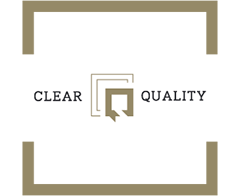
CNC Machining in the Aerospace Industry
The aerospace industry within the UK is one of the largest in the world. Our history within this sector is rich and we have continued to provide some of the best manufacturing solutions year on year. We work with state-of-the-art CNC machines, materials and components for flight vehicles, ensuring that we meet the safety standards with our methods.
CNC Machining in The Aerospace Sector
When manufacturing a component for an aircraft, it must be created with precision and have a high level of accuracy for it to be deemed safe and suitable. This is where CNC Machining comes in and makes a huge impact on manufacturing with its tight tolerances and high degrees of complexity in parts. We use different types of CNC machining for the aerospace sector to allow the highest quality of work that is possible, saving time, money and getting the job done properly.
5 Axis Machining
5 Axis CNC Machining uses 5 axes simultaneously to operate which means the machine is extremely precise. Aerospace parts are complex and require specialist materials which the 5 axis CNC machine is capable of handling. This is a desirable method of machining within the aerospace industry
If you want to learn more about 5 axis machining, read our 5 axis CNC Machining guide, here.
3D CNC Machining
Larger aerospace components require complex operating machines which is why the 3D CNC Machine is used for these types of parts. This allows operations to be completed with accuracy, ease and lower costs.
3D Machining has the capability to run multiple components in a variety of materials. This ensures that parts are manufactured to the exact specification and can meet guidelines.
CNC Turning
CNC turning allows aerospace components to be manufactured so that they interact well together. CAD software controls a CNC Lathe Machine that turns at high speeds and cuts away excess material. This method of CNC Machining contributes reliability to the aerospace sector by allowing faultless components to work together.
Materials For Aerospace
When choosing materials for aerospace manufacturing, each one has to be strong, reliable and resistant to wear & tear. CNC Machines are built to be able to create components using various materials that meet these requirements. Some materials are better suited for aeronautical and astronautical use than others and some have been developed specifically for aerospace applications.
Titanium
Titanium has a great strength to weight ratio. This material is commonly used in military aircraft and is extremely cost-efficient. CNC Machining this type of material allows it to be safer, versatile and more affordable than other methods.
Things to remember when CNC Machining titanium is that it is less rigid so requires a good grip when machining and it is wise to be mindful of the heat build-up with titanium when using this method so it may be useful to reduce the RPM.
Stainless Steel
Stainless Steel has been used in the aircraft industry for decades due to its resistance to corrosion and high temperature oxidation. It can resist temperatures up to 1150 C. Common uses for this material include fuel tanks, exhaust components, panels, engine parts and parts that require welding.
This type of material can be easily machined and has excellent properties which make it suitable for a wide range of purposes in the aerospace sector.
Aluminium
This material is incredibly light, being just a third of the weight of stainless steel. Therefore, the machining of this is generally cheaper and can be used for a variety of aerospace applications. Additional benefits of aluminium are that it aids fuel efficiency and is easily workable.
CNC Machining can be used with aluminium to make a variety of components that contribute to the aerospace industry, however, it isn’t appropriate for components that need heat resistance or are suitable for welding like stainless steel is.
High-Temperature Super Alloys
Most aircrafts require materials that are corrosion-resistant, lightweight and have high heat resistance. These materials are commonly manufactured for a jet engine’s hottest sections, the turbine and compressor stages. Superalloys include Nickel, Cobalt and Iron.
All can be CNC Machined to create highly accurate and fit for purpose aerospace components.
Summary
CNC Machining in the Aerospace sector requires the right machines, techniques, materials and professional team. At Oracle Precision, we are AS9100 accredited which means that we are an approved manufacturer of the aerospace sector. This further means that we are better at managing risk, working efficiently and achieving the top level of manufacturing quality.
We have implemented the correct procedures that enable us to meet all of the aerospace standards, going above and beyond for our clients. Got an aerospace project you need help with? Get in contact with us today.

